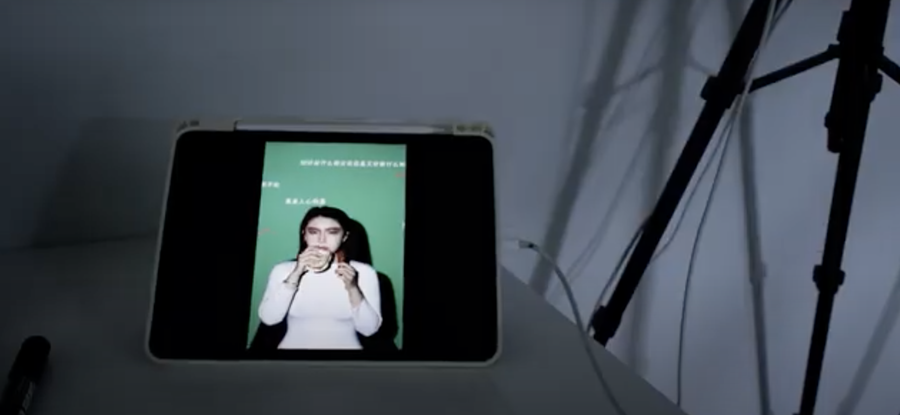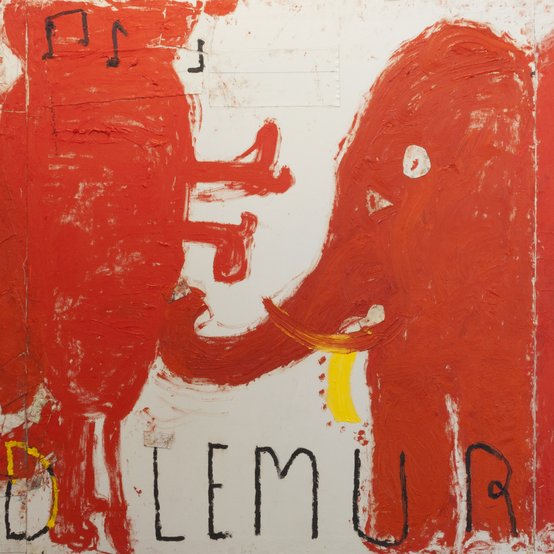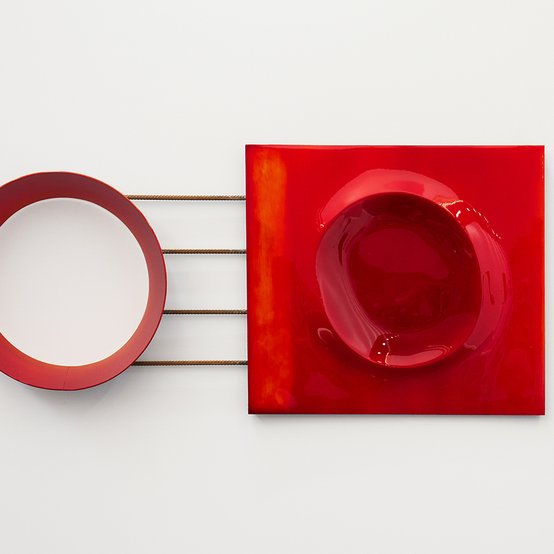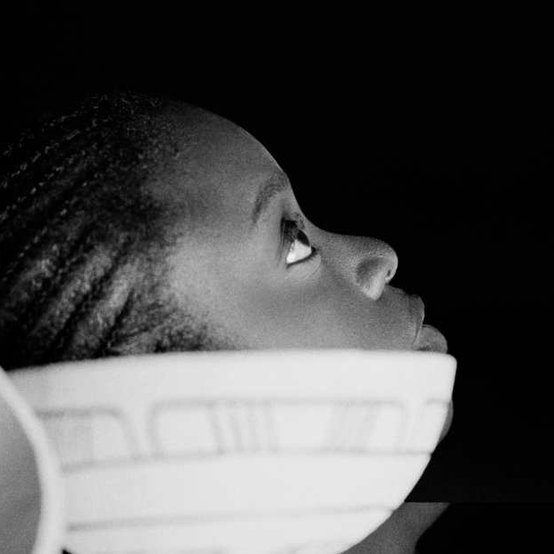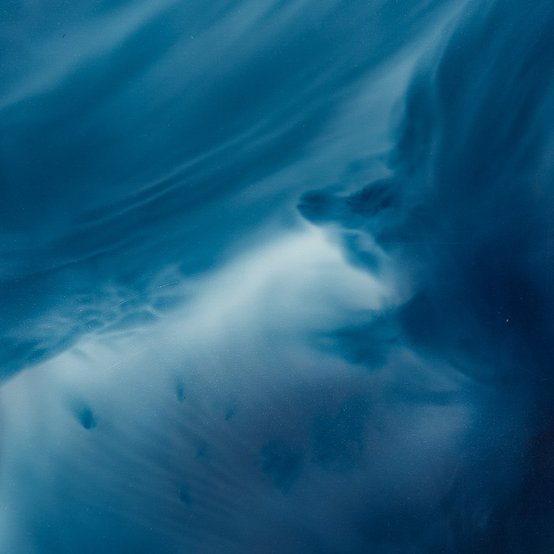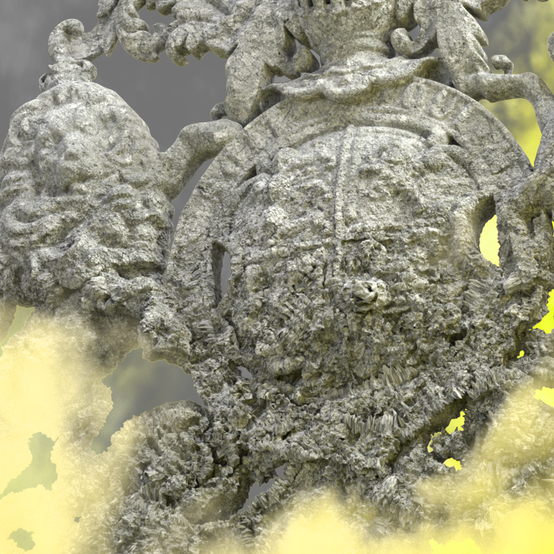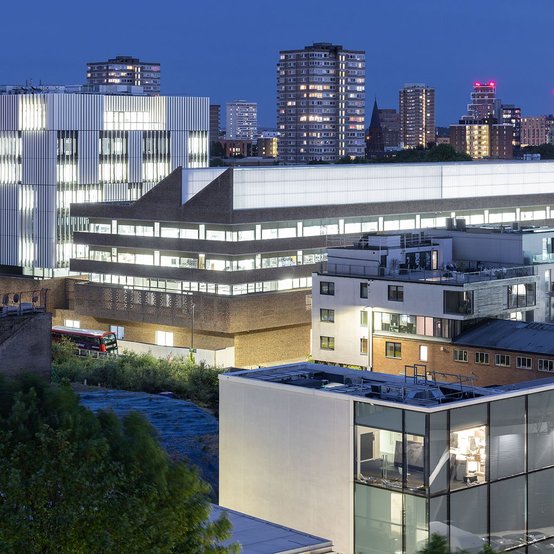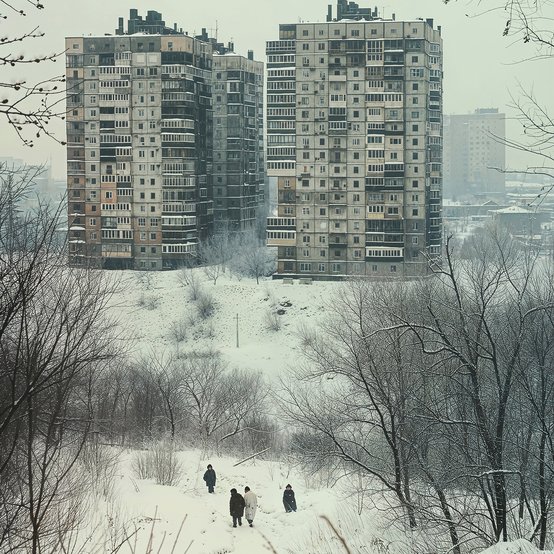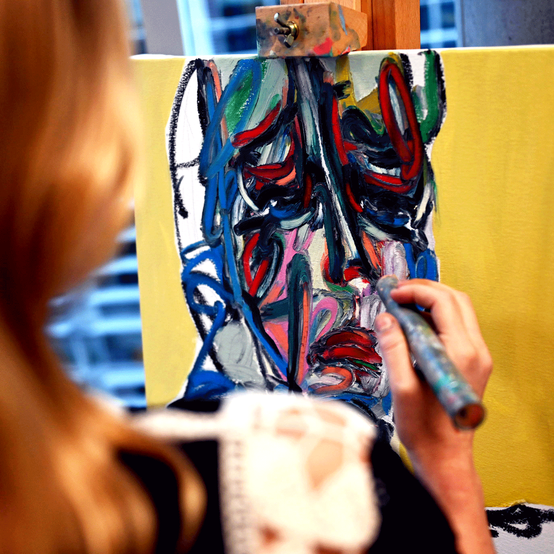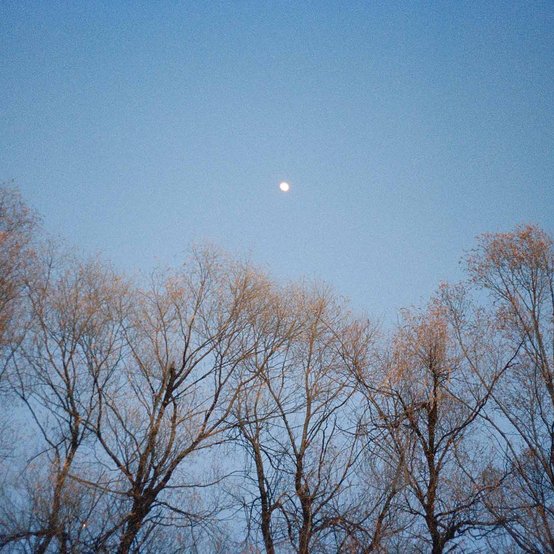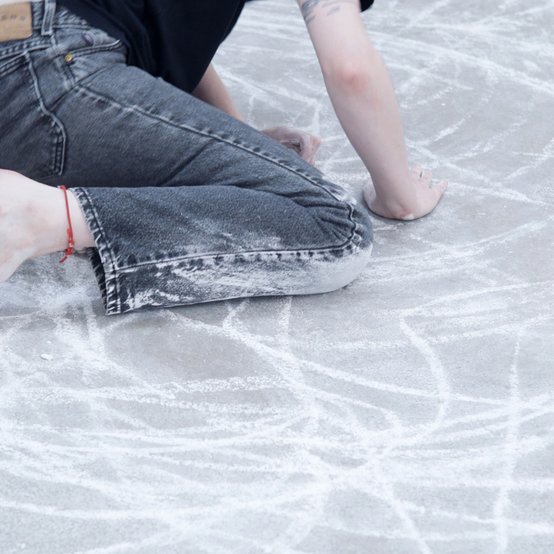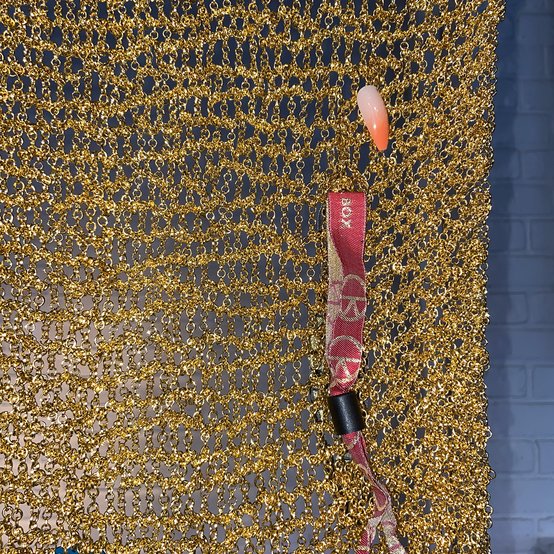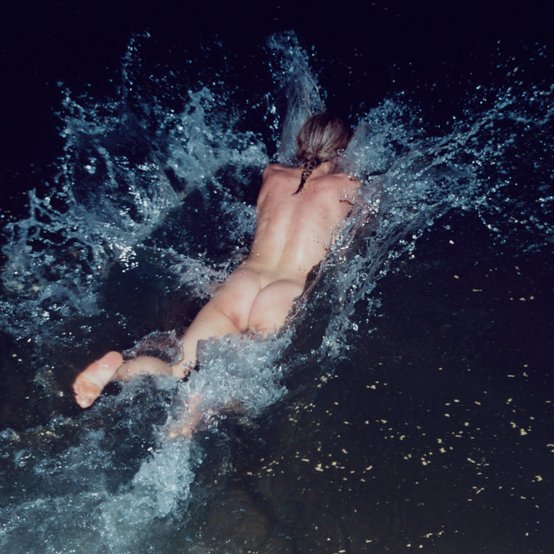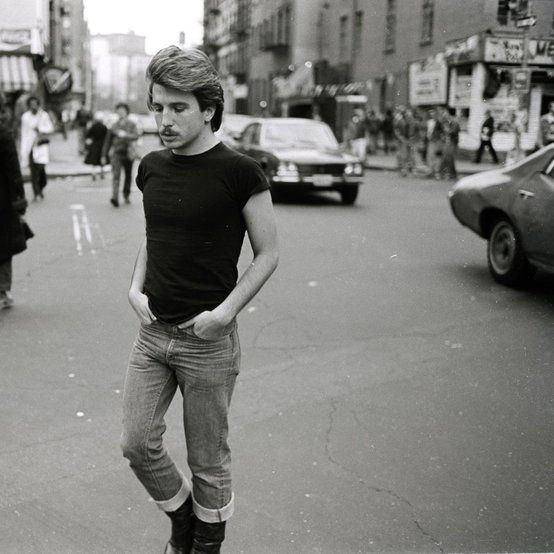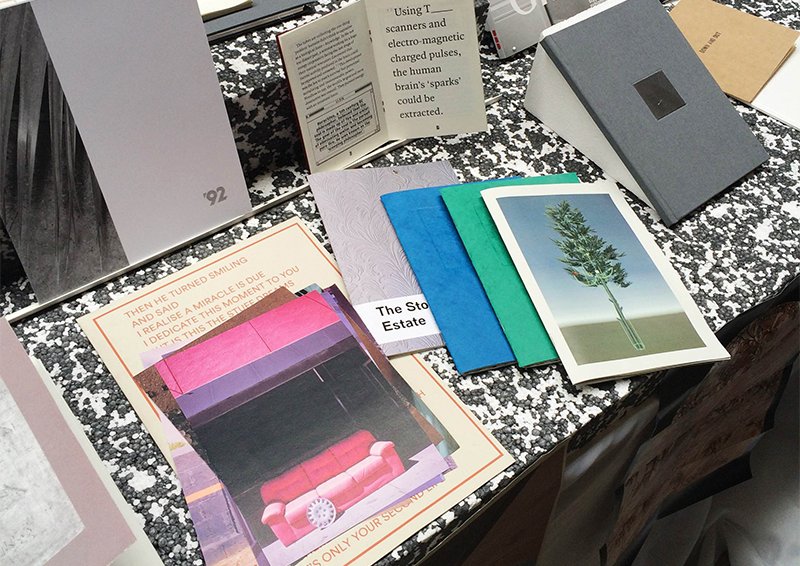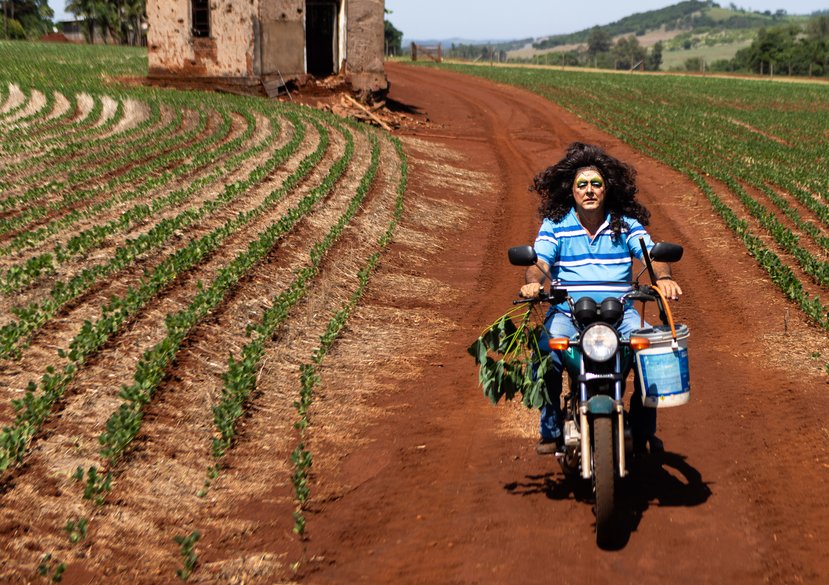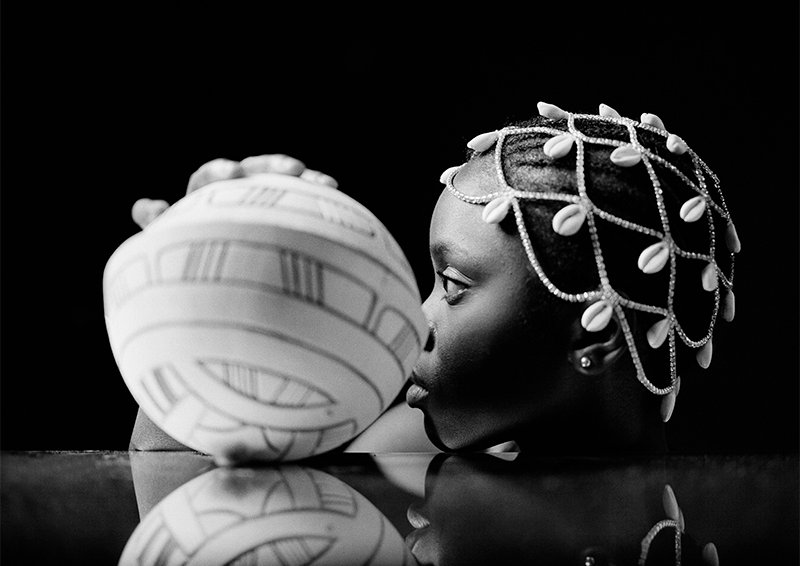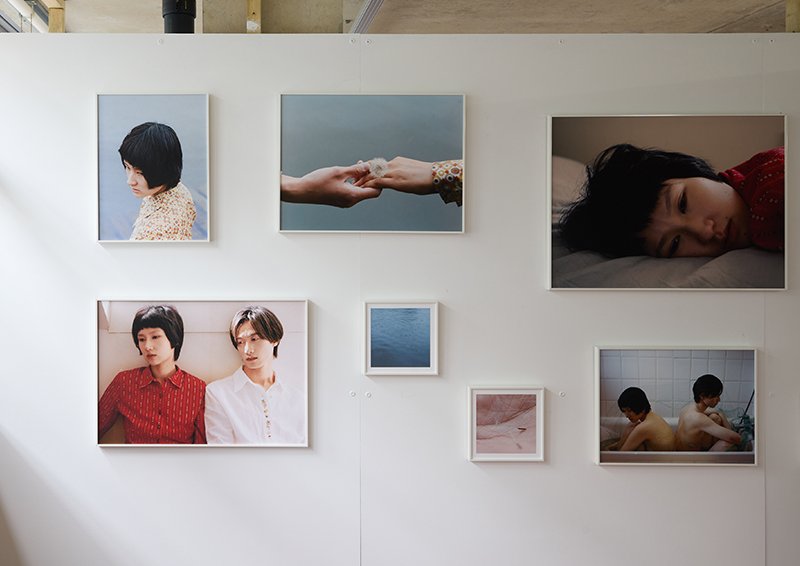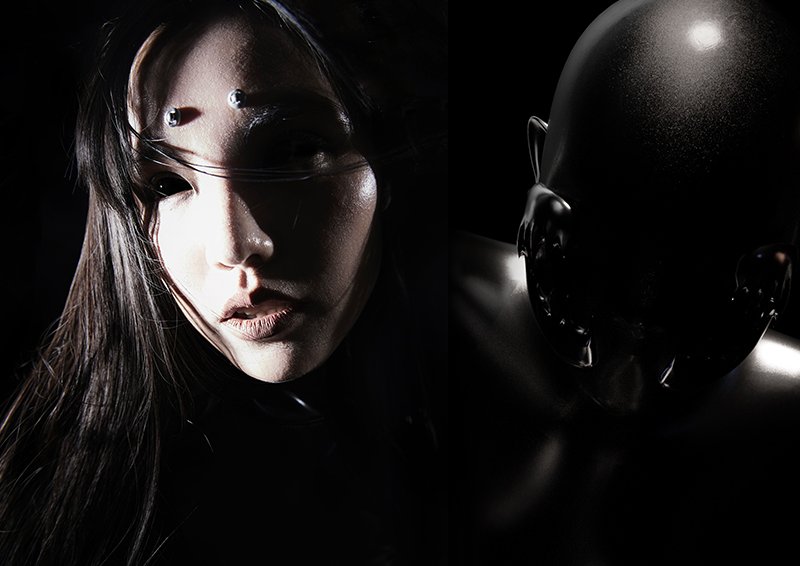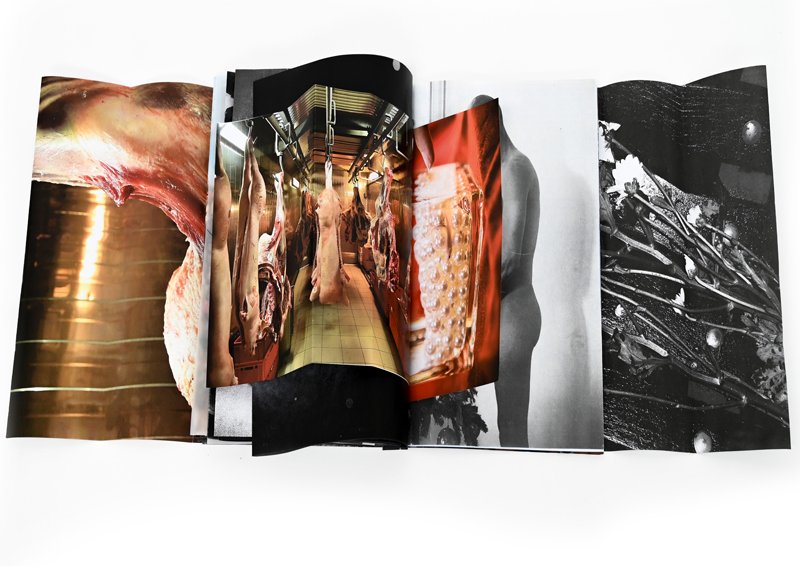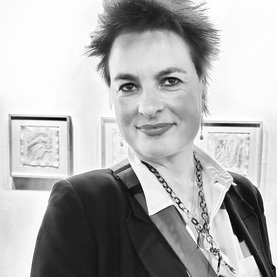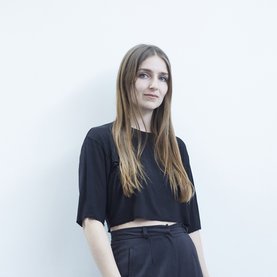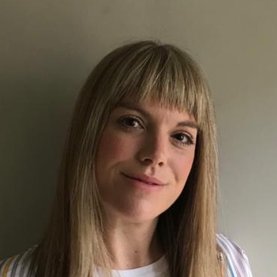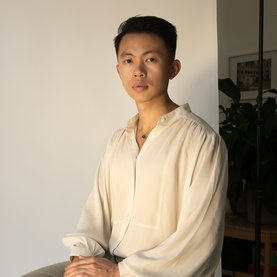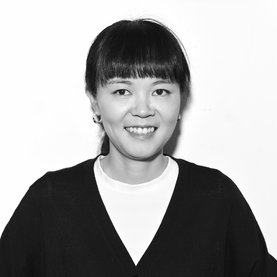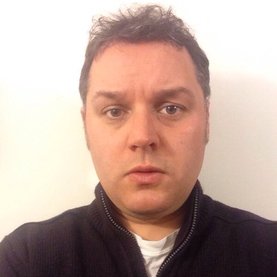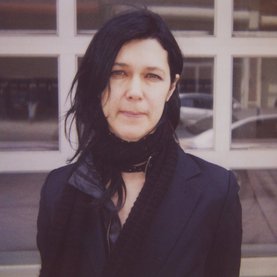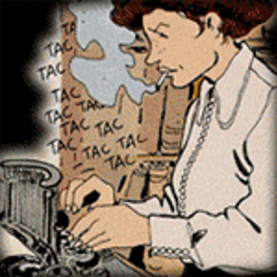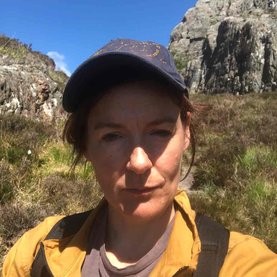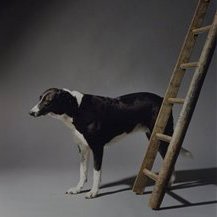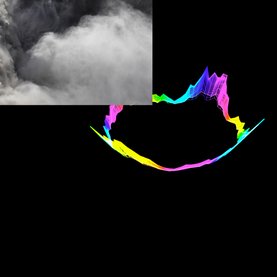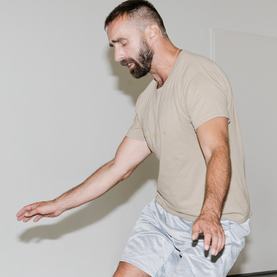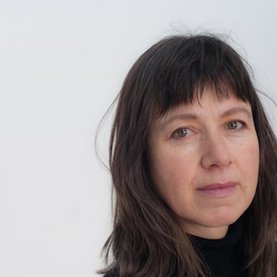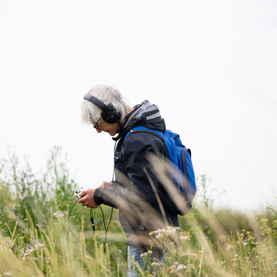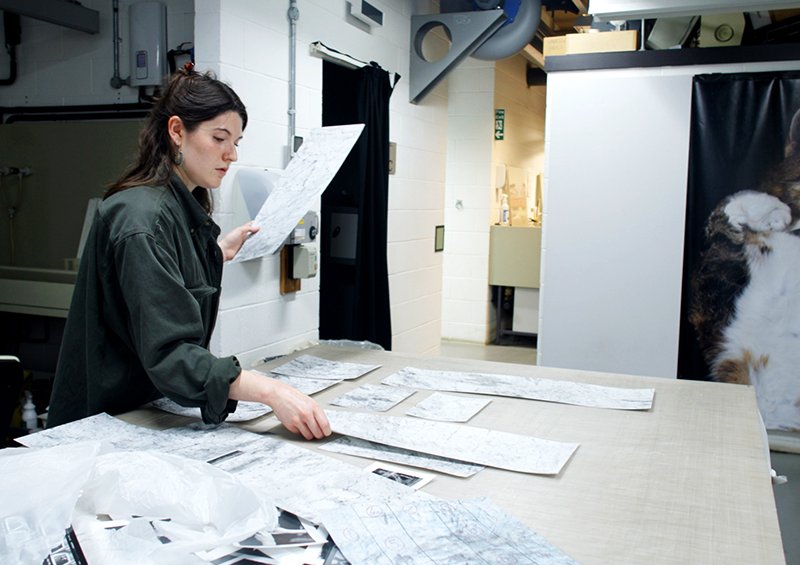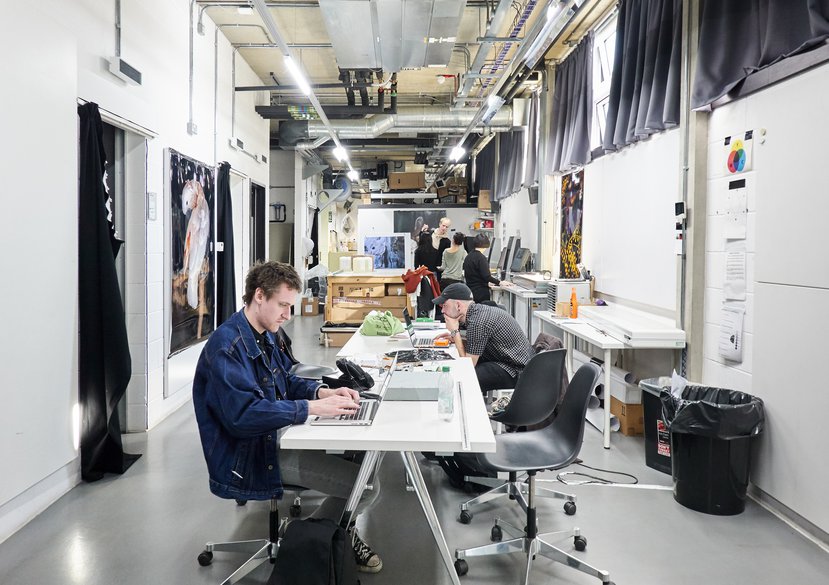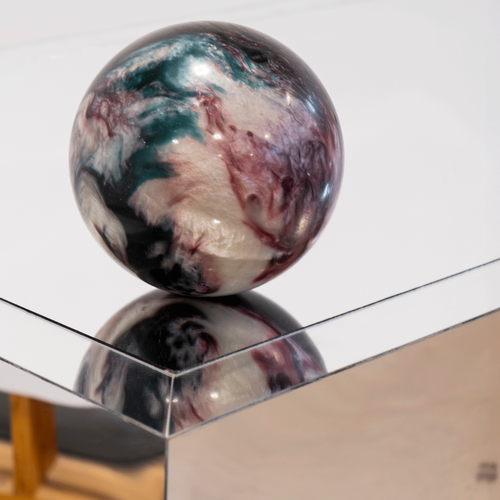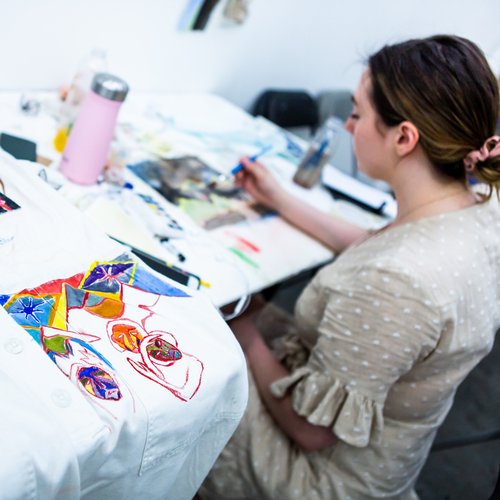
Overview
Productive fluidity
Key details
- 180 credits
- 1 year / 45 week programme
- Full-time study
School or Centre
Current location
- Battersea
Next open event
- 31 Jan 2026
- Visit Open Day
Next application deadline
- 17 Mar 2026
An expanded and interdisciplinary art practice with no fixed identity.
The MA Photography programme at the RCA comprises a unique, cross-disciplinary community of artists and writers working at the cutting edge of contemporary photographic practice and image-making. We understand photography to be an expansive and evolving practice, which includes the still and moving image, publishing, performance, installation, social practice, sound, synthetic media, text, and writing. Central to our approach is the practising, theorising, and receiving of photography as a field unrestricted by the conventions of material, medium, format, discipline, and genre. Important to our programme ethos is a commitment to process; to the unknown, indeterminate, speculative, and hybrid.
We are committed to probing what the photographic image is, and could be, across contemporary art practices. From diverse perspectives we consider digital and analogue forms of photography in relation to socio-political debates, intercultural discourses, exchanges between theory and practice, and emerging modes of circulation and distribution. Driven by research-led teaching and state-of-the-art technical facilities, you will contribute to vital discussions about the future of the image today at an urgent time of ecological crisis and technological change impacted by questions of visibility and representation.
Our faculty of artists, writers, and theorists will support you to develop your work into a critical, reflective, and professionally robust practice. Unique to your experience at the RCA will be the themed practice group that you will join at the start of the year. Each practice group is led by a faculty member; emphasising communal learning and encouraging curiosity. The practice group is an invitation to push at the critical, conceptual, practical, and material possibilities of your research and practice in dialogue with others. You will attend to important aesthetic, theoretical, cultural, and historical contexts for your work.
Explore further and apply now
Catch the replays from our latest online Open Day.
Watch portfolio advice from the programme team.
Applications are now open for September 2026 entry. Round 2 application deadline: 17 March 2026, 12 noon (UK time). Apply now.
Student and alumni stories
Gallery
Staff
Facilities
The School of Arts & Humanities is located across our Battersea and Kensington sites.
View all facilitiesAll full-time students on fine or applied arts programmes are provided with studios or workspace, and access to specialist workshops. There are a number of bookable seminar and project spaces across the site available to all Arts & Humanities students.
Our alumni
Our alumni form an international network of creative individuals who have shaped and continue to shape the world. Click on each name to find out more.
Where will the RCA take you?More details on what you'll study.
Find out what you'll cover in this programme.
What you'll cover
Programme structure
The programme is delivered across three terms and includes a combination of programme, School and College units.
Term 1
Situating Photography: Practice and Discourse (45 credits) orientates you through resource inductions and workshops. You will be introduced to the programme community in student and staff presentations.
Across Terms 1 and 2, you will participate in AcrossRCA, the College-wide unit. See below for more details.
Term 2
The Making Public unit (30 credits) situates photography as an expanded and expanding field in contemporary art. Particular attention is placed on the materiality and performativity of the image.
In term two, all School of Arts & Humanities students will participate in the Urgency of the Arts unit (15 credits). In this unit we ask how arts and humanities research and practice can engage with our current socio-political climate and how might it shape, be necessary and essential in contemporary cultural debates.
The unit introduces students to diverse perspectives, approaches, and methods relevant to contemporary practice and thought in the arts and humanities. The delivery, predominantly based on workshops and featuring specialist presentations by leading artists aims to assist students in recognising, questioning, expanding, and reevaluating their own artistic practices and disciplinary assumptions. Through interactions with staff and students from across the School, as well as through a variety of methodological approaches, students will develop an understanding of the contemporary concerns that shape and influence artistic practice.
You will be supported in understanding the possibilities, complexities and impact of your own work. You will be encouraged to contextualise this within broad cultural landscapes to recognise and emphasise its potential and the complex ways your work may be received and understood.
Term 3
The Independent Research Project (60 credits) takes three parts.
In Part A: Independent practice you will explore ways to make your independent project public, working towards an exhibition of your artwork. You work autonomously towards understanding practice-led methodologies, critical reflection and exhibition.
In Part B: Public Exhibition you will come together to make an exhibition exploring the practical and conceptual implications of staging, making public, and working in conjunction with others. The making of the exhibition is a reflexive site for innovation and development. A viva voce takes place in the exhibition when you will present your work to a panel of Personal and Senior Tutors. After this, the exhibition opens to the public.
Part C: Professional Practice takes place after the exhibition as a programme of professional practice seminars that arts professionals will predominantly staff. These seminars provide a context to explore reception, dissemination and professional identity ideas. Towards the end of the unit, using skills gained from the professional practice seminars, you will consolidate the work presented in your exhibition and work towards developing a digital platform or a small print publication. This can be done independently or in collaboration and will establish your professional identity, supporting the further dissemination of your practice beyond the institution.
This MA is delivered over 45 weeks.
AcrossRCA
AcrossRCA is a compulsory 30-credit unit which is delivered as part of all MA programmes.
Situated at the core of your RCA experience, this ambitious interdisciplinary College-wide unit supports you in responding to the challenges of complex, uncertain and changing physical and digital worlds. Developed in response to student feedback, AcrossRCA creates an exciting opportunity for you to collaborate meaningfully across programmes.
Challenging you to use your imagination and intellect to respond to urgent contemporary themes, this ambitious unit will provide you with the opportunity to:
- make connections across disciplines
- think critically about your creative practice
- develop creative networks within and beyond the College
- generate innovative responses to complex problems
- reflect on how to propose ideas for positive change in local and/or global contexts
AcrossRCA launches with a series of presentations and panel discussions from acclaimed speakers who will introduce the themes and act as inspirational starting points for your collaborative team response.
Delivered online and in-person across two terms, the unit has been designed to complement your disciplinary studies and to provide you with a platform to thrive beyond graduation.
Requirements
What you need to know before you apply
Candidates are selected entirely on merit and applications are welcomed from all over the world. The selection process considers creativity, imagination and innovation as demonstrated in your portfolio, as well as your potential to benefit from the programme and to achieve high MA standards overall.
You are generally expected to have a good BA degree from a photography or fine art course. You should be able to demonstrate an original and critical approach to photography as well as an ability to engage with current theories of art and culture that inform your practice.
What's needed from you
Portfolio requirements
Photography is a medium that is constantly shifting, and as such we welcome submissions that reflect a diversity of practice, materials and artistic strategies. These may include still or moving image, installation, performance, text-based works and other interstitial or relational practices. Our programme is rooted in Fine Art practice rather than commercial approaches to Photography, and your portfolio should align with that focus.
Your portfolio forms a significant part of your application to the programme, and so please consider what you submit very carefully.
- You can upload up to five artworks, one in each of the spaces provided.
- The work should be made by you (if collaborative, please indicate and state your contribution), and focus on recent work where possible.
- For each work submit either image, PDF, video, audio as appropriate, along with a short text with title, date, size, medium and brief description.
- If you would like to include multiple files for a single artwork please combine them into a PDF as images and/or URLs (add URLs into the description box).
- In your written statement please describe your work and the positions it takes in response to the social, political and economic context in which it is produced and shared.
- Tell us about the ideas you engage with and include artists, writer and thinkers that you have learned from to develop your own practice.
We will review your visual portfolio and written statement based on how innovatively you engage with photography and how successfully you describe your work.
Personal statement
Please provide a 300-word written personal statement that addresses the following points:
- Introduce yourself, your interests and your motivations for applying to the Royal College of Art, and to this programme in particular.
- Briefly summarise any educational background and professional experience to date that will support your application.
- Tell us what you want to do in the future.
Video requirements
We ask that you upload a two-minute video recorded on your phone or laptop, speaking to us directly. High production qualities are not needed. We will review the work in your portfolio, so keep your video simple.
- In your video, please describe your art practice and how it explores and relates to ongoing debates in contemporary art.
- Let us know how you understand Photography – historically, conceptually and experientially – in relation to your work.
- Include any practice-based or contextual research that has influenced your practice, and elaborate on the questions previously asked for in your written statement.
English-language requirements
If you are not a national of a majority English-speaking country you will need the equivalent of an IELTS Academic or UKVI score of 6.5 overall (with a minimum of 5.5 in every component). Students achieving a grade of at least 6.0, with a grade of 5.5 in the Test of Written English, may be eligible to take the College’s English for Academic Purposes course to enable them to reach the required standard.
You are exempt from this requirement if you have received a 2.1 degree or above from a university in a majority English-speaking nation within the last five years.
If you need a Student Visa to study at the RCA, you will also need to meet the Home Office’s minimum requirements for entry clearance.
Fees & funding
For this programme
Fees for new students
Fees for September 2026 entry on this programme are outlined below. From 2021 onward, EU students are classified as Overseas for tuition fee purposes.
Home
Overseas and EU
Deposit
New entrants to the College will be required to pay a non-refundable deposit in order to secure their place. This will be offset against the tuition fees. Deposits for 2026 entry will be confirmed in September 2025; 2025 deposit rates below for reference.
Home
Overseas and EU
Progression discount
For alumni who have completed an RCA Graduate Diploma and progress onto an RCA MA programme, a progression discount of £1,000 is available. For alumni progressing from an RCA Master's to another RCA Master's, a progression discount of £2,000 is available (£1,000 per year for part-time programmes).
* Total cost is based on the assumption that the programme is completed in the timeframe stated in the programme details. Additional study time may incur additional charges.
Scholarships
Scholarships
Each year, the RCA scholarship programme supports hundreds of students. The following scholarships are confirmed for this programme, with additional awards added throughout the year.
GREAT Scholarship
Eligible programmes: Interior Design MA, City Design MA, Environmental Architecture MA, Ceramics & Glass MA, Contemporary Art Practice MA, Curating Contemporary Art MA, V&A/RCA History of Design MA, Jewellery & Metal MA, Painting MA, Photography MA, Print MA, Sculpture MA, Writing MA, Animation MA, Digital Direction MA, Information Experience Design MA, Visual Communication MA, Design Products MA, Fashion MA, Intelligent Mobility MA, Service Design MA, Textiles MA, Creative Education MEd, Communication MFA, Master of Research RCA MRes, Design Futures MDes, Arts & Humanities MFA, Design Practice MArch
Other criteria: None
Eligible fee status: Overseas fee status
Value: £10,000 toward fees
House of Fraser Bursary
Eligible programmes: Architecture MA Architecture (ARB/RIBA Part 2), Interior Design MA, City Design MA, Environmental Architecture MA, Ceramics & Glass MA, Contemporary Art Practice MA, Curating Contemporary Art MA, V&A/RCA History of Design MA, Jewellery & Metal MA, Painting MA, Photography MA, Print MA, Sculpture MA, Writing MA, Animation MA, Digital Direction MA, Information Experience Design MA, Visual Communication MA, Design Products MA, Fashion MA, Innovation Design Engineering MA/MSc, Intelligent Mobility MA, Service Design MA, Textiles MA
Other criteria: None
Eligible fee status: Home fee status
Value: £10,000 toward fees
Leverhulme Arts Scholarship
Eligible programmes: Contemporary Art Practice MA, Painting MA, Photography MA, Print MA, Sculpture MA
Other criteria: None
Eligible fee status: Home fee status
Value: £10,000 toward living costs
RCA President & Vice-Chancellor’s International
Eligible programmes: Architecture MA Architecture (ARB/RIBA Part 2), Interior Design MA, City Design MA, Environmental Architecture MA, Ceramics & Glass MA, Contemporary Art Practice MA, Curating Contemporary Art MA, V&A/RCA History of Design MA, Jewellery & Metal MA, Painting MA, Photography MA, Print MA, Sculpture MA, Writing MA, Animation MA, Digital Direction MA, Information Experience Design MA, Visual Communication MA, Design Products MA, Fashion MA, Innovation Design Engineering MA/MSc, Intelligent Mobility MA, Service Design MA, Textiles MA, Creative Education MEd, Communication MFA, Master of Research RCA MRes, Design Futures MDes, Arts & Humanities MFA, Design Practice MArch
Other criteria: Applicants from Australia, Brazil, Canada, Chile, Colombia, Denmark, Egypt, France, Germany, Greece, Hong Kong, India, Indonesia, Israel, Italy, Japan, Malaysia, Mexico, Netherlands, Nigeria, Pakistan, Palestine, Poland, Portugal, Saudi Arabia, Singapore, South Korea, Spain, Switzerland, Taiwan, Thailand, Turkey, UAE, USA
Eligible fee status: Overseas fee status
Value: £9,000 toward fees
RCA President & Vice-Chancellor’s UK Scholarship
Eligible programmes: Architecture MA Architecture (ARB/RIBA Part 2), Interior Design MA, City Design MA, Environmental Architecture MA, Ceramics & Glass MA, Contemporary Art Practice MA, Curating Contemporary Art MA, V&A/RCA History of Design MA, Jewellery & Metal MA, Painting MA, Photography MA, Print MA, Sculpture MA, Writing MA, Animation MA, Digital Direction MA, Information Experience Design MA, Visual Communication MA, Design Products MA, Fashion MA, Innovation Design Engineering MA/MSc, Intelligent Mobility MA, Service Design MA, Textiles MA, Creative Education MEd, Communication MFA, Master of Research RCA MRes, Design Futures MDes, Arts & Humanities MFA, Design Practice MArch
Other criteria: None
Eligible fee status: Home fee status
Value: £5,000 toward fees
The RCA Sanctuary Scholarship
Eligible programmes: Interior Design MA, City Design MA, Environmental Architecture MA, Ceramics & Glass MA, Contemporary Art Practice MA, Curating Contemporary Art MA, V&A/RCA History of Design MA, Jewellery & Metal MA, Painting MA, Photography MA, Print MA, Sculpture MA, Writing MA, Animation MA, Digital Direction MA, Information Experience Design MA, Visual Communication MA, Design Products MA, Fashion MA, Intelligent Mobility MA, Service Design MA, Textiles MA, Creative Education MEd, Communication MFA, Master of Research RCA MRes, Design Futures MDes, Arts & Humanities MFA, Design Practice MArch
Other criteria: None
Eligible fee status: Home or overseas status
Value: Full fees & support package up to the value of £20,000 pa (depending on the awardee’s circumstances)
The Sir Frank Bowling Scholarship
Eligible programmes: Architecture MA Architecture (ARB/RIBA Part 2), Interior Design MA, City Design MA, Environmental Architecture MA, Ceramics & Glass MA, Contemporary Art Practice MA, Curating Contemporary Art MA, V&A/RCA History of Design MA, Jewellery & Metal MA, Painting MA, Photography MA, Print MA, Sculpture MA, Writing MA, Animation MA, Digital Direction MA, Information Experience Design MA, Visual Communication MA, Design Products MA, Fashion MA, Innovation Design Engineering MA/MSc, Intelligent Mobility MA, Service Design MA, Textiles MA, Creative Education MEd, Communication MFA, Master of Research RCA MRes, Design Futures MDes, Arts & Humanities MFA, Design Practice MArch
Other criteria: None
Eligible fee status: Home fee status
Value: Full fees and maintenance
Even if you do not currently see a scholarship for which you meet the eligibility criteria, we encourage you to apply to be considered for financial support.
Unless otherwise stated, you must apply in either round 1 or 2, and have received an offer of study on an RCA programme to be invited to make a scholarship application. Therefore, we strongly recommend you apply for your programme as early as possible but no later than the round 2 deadline.
More information
Additional fees
In addition to your programme fees, please be aware that you may incur other additional costs associated with your study during your time at RCA. Additional costs can include purchases and services (without limitation): costs related to the purchase of books, paints, textiles, wood, metal, plastics and/or other materials in connection with your programme, services related to the use of printing and photocopying, lasercutting, 3D printing and CNC. Costs related to attending compulsory field trips, joining student and sport societies, and your Convocation (graduation) ceremony.
If you wish to find out more about what type of additional costs you may incur while studying on your programme, please contact the Head of your Programme to discuss or ask at an online or in person Open Day.
We provide the RCASHOP online, and at our Kensington and Battersea Campuses – this is open to students and staff of the Royal College of Art only to provide paid for materials to support your studies.
We also provide support to our students who require financial assistance whilst studying, including a dedicated Materials Fund.
External funding
There are many funding sources, with some students securing scholarships and others saving money from working. It is impossible to list all the potential funding sources; however, the following information could be useful.
Payments
Tuition fees are due on the first day of the academic year and students are sent an invoice prior to beginning their studies. Payments can be made in advance, on registration or in two instalments.
Experience
The social media content shown here reflects past and current student activity and is provided for illustrative purposes only. Experiences on the programme may vary and are subject to change for future students.
Start your application
Change your life and be here in 2026. Applications now open.
The Royal College of Art welcomes applicants from all over the world.
Before you begin
Make sure you've read and understood the entrance requirements
Visit the requirements pageCheck you have all the information you need to apply.
Read our application process guideConsider attending an Open Event, either online or in person, or watch recordings of previous events.
See upcoming events and recordingsPlease note, all applications must be submitted by 12 noon on the given deadline.
Ask a question
Get in touch if you’d like to find out more or have any questions.

